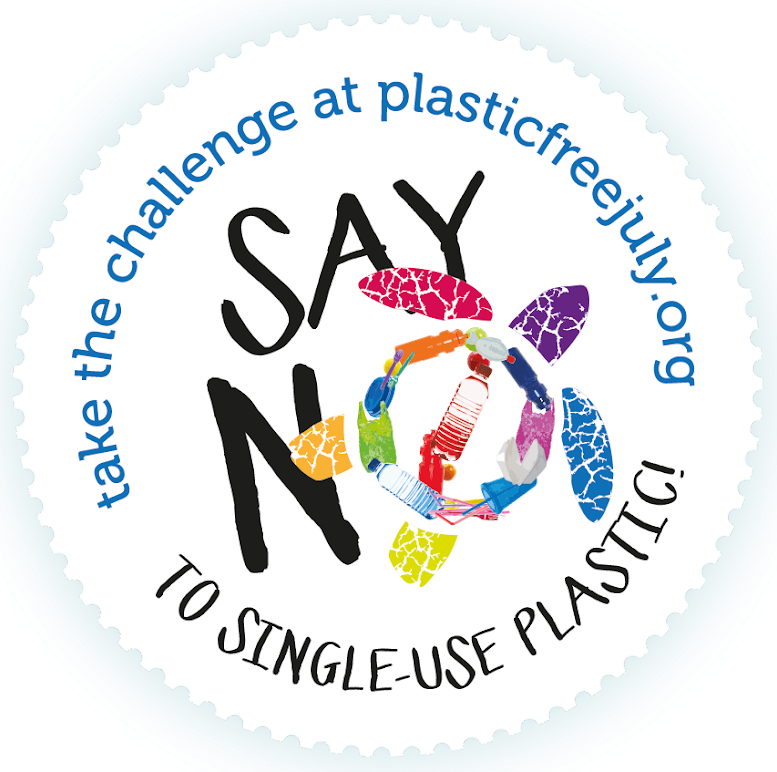By Sally Stovall
My husband and I were at a restaurant recently and we noticed that there was a handful of paper-wrapped straws on the table. When we looked at one of these packages, we were pleasantly surprised to see that these straws were made from plants (not plastic) and that they were 100% compostable! Since there are 500 million plastic straws used and discarded every day in the United States alone, that’s very good news to see a restaurant that has made the choice to go in a different direction!
The news is filled these days with examples of action at all levels!
The European Union (EU) has proposed measures that will reduce the top 10 plastic items most commonly found on beaches, including straws, bottles, disposable cutlery and fishing gear. “It’s in the air, it’s in our oceans, it’s in our food and also in our bodies,” said the VP of the European Commission which proposed this legislation. (source: https://www.nytimes.com/2018/05/28/world/europe/european-union-plastics-pollution.html)
Vancouver, British Columbia, will be the first major Canadian city to ban plastic straws. The straw ban, which takes effect next year, is part of a program of waste-reducing policies. This also includes a ban on distribution of polystyrene (Styrofoam) cups and more. The city aims to completely eliminate the disposal of solid waste by 2040! (source: https://www.theglobeandmail.com/canada/british-columbia/article-vancouver-to-be-first-major-canadian-city-to-ban-plastic-straws/)
Starbucks, American and Alaska Airlines and several large hotel chains and a cruise lines have also announced plans to eliminate plastic straws in their places of business within the next two years. Many independent local restaurants are also choosing to eliminate plastic straws or to offer them only on request rather than as a standard procedure.
A reminder from disability rights groups
While these moves are applauded for their importance to our waterways, wildlife and waste management concerns, disability rights groups have spoken up to point out that a total ban could negatively affect people with physical disabilities. Advocates point out that some people with disabilities need the flexibility of plastic straws because of how their bodies work, or because of how they use their mouths to sip. Finding acceptable alternatives will be an important part of this transition. (source: http://fortune.com/2018/07/11/ditching-plastic-straws-replacements/)
The situation that catalyzed these initiatives
There is growing evidence that the impact of single use plastics in our environment has become unacceptable. A New York Times article last year referred to plastics as the “eternal footprint that humanity leaves on earth.” A recent study revealed that from the 1950’s to today 8.3 metric tons of plastic have been produced, nearly half of it since 2004. Since plastic does not naturally biodegrade, this plastic is sitting in landfills, floating in the oceans, rivers and lakes, or littering city streets, rural roadsides and beaches. Plastic particles are often mistaken for food and ingested by sea creatures. This 2015 video of a plastic straw being removed from the nostril of a sea turtle caught the attention of many people and helped to bring the issue to the forefront.
What we can do as individuals & families and in our communities?
Initiatives such as the Shedd Aquarium’s “Shedd the Straw” program and The Last Plastic Straw organization offer resources to support organizations and families in taking steps that will address the single-use plastics problem. They include the following:
Request “no straw” at bars & restaurants.
Eliminate single use plastics wherever possible in our homes, organizations and activities.
Encourage your favorite restaurant or bar to only provide straws on request from the customer and to use compostable or reusable options to the plastic straw.
Participate in a beach, river or forest clean-up.
Share your concern about this issue through social media.
Let your public officials know that you care about this issue and support policies that encourage elimination of single use plastics.
Join the groundswell of voices that are choosing and advocating for the elimination of single-use plastics! Less consumption, less waste, fewer straws, and a safer, cleaner environment for land and sea creatures – including us!



